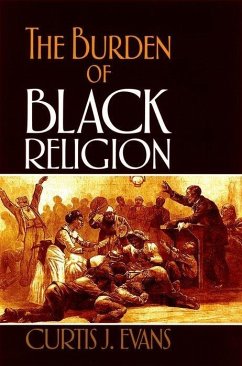In the long and tortured history of American ideas about race, religion has played a prominent role. In this book, Curtis Evans traces ideas about African American religion from the antebellum period to the middle of the twentieth century. Central to the story, he argues, is the notion--popular throughout this period--that blacks were somehow naturally religious. In the antebellum period, the religious sentiments of blacks were commonly pointed to as a signal trait of their humanity and as a potential source for their contribution to American culture. Abolitionists began linking the distinctive religious feelings of blacks to their capacity for freedom and by doing so made the first, halting steps toward multiracial democracy. Yet the very notion of a peculiar African religious sensibility masked doubts about the intellectual abilities of blacks and reflected white misgivings about the lack of spiritual and moral values in their own culture. Later, when religion was less central to the lives and thought of American cultural elites, the notion of natural religion became an obstacle to African American integration.As more and more value was placed on reason, rationality, and science, many whites pointed to blacks' natural religiosity as a sign of their inferiority and used that argument to justify their subordination. At the same time, many social scientists--both black and white--sought to debunk the idea of innate religiosity to show that blacks were in fact fully capable of assimilation into white American culture. Evans shows how interpretations of black religion played a crucial role in shaping broader views of African Americans and had real consequences in their lives. In the process, he offers an intellectual and cultural history of race in a crucial period of American history.








